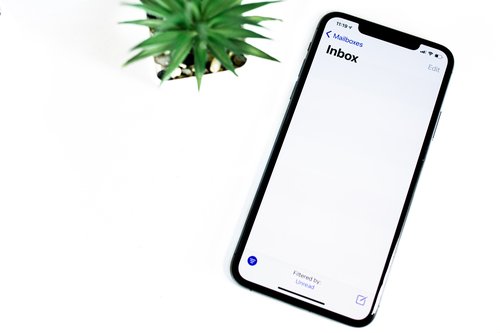Selling a national brand, locally
Many local businesses, whether a franchise or a local office, are part of bigger organisation with a national or regional footprint. Unless 'head office' has a really strong approach to regional marketing, the task of raising awareness and generating leads locally often sits with the local sales team. Samantha Smith looks at some of the challenges and how to manage them.
With local teams often focused on short-term activity such as writing proposals, closing deals or meeting clients, the centrally driven, slower burn marketing activity that is essential to developing a trusted and respected brand can be undervalued. Local teams, under pressure to hit targets, can feel a need to create materials and campaigns of their own. The result?: tension, frustration and inefficiency all round..
As a result of working with some national brands as well as several smaller, lesser-known businesses, all experiencing a need to increase leads for their local offices, I've created the following ‘Top 10 tips to local marketing of a centrally managed brand'.
- Develop a marketing activity plan
This may sound obvious, but if you don't write your plan down, you can't commit to it and the likelihood of if not happening because something more urgent has taken over will be high. Your plan will also help you identify and make best use of any centrally planned campaigns, materials or events.
To build you profile locally, and get your name known by your target market, marketing needs to be consistent, regular and use a combination of tools e.g. email, PR, social media and events - it can take anywhere between 7 and 15 ‘touches' to build a relationship with a B2B prospect. - Focus on what you can do, not what you can't do
On the whole, and for good reason, national brands will have brand guidelines. Guidelines will cover how the name, logo and values of the business are to be represented. Work within them, use any materials provided and ask for help producing additional marketing collateral that you think will help you generate more leads. For many franchises, marketing support is part of the deal, so ask for what you need.
Don't create ‘off-brand' materials, no matter how creative you are feeling. Low quality print-outs, low resolution or distorted images and typo's won't help convey a professional image. - Get your message approved by compliance or your legal point of contact
This is especially important if you work in a regulated industry. Remember, whilst your opinion is likely to be correct and valuable, it's your view, not that of your brand. Consider what you wish to say, and how this will portray you and your brand. Plan in time for sign-off and try to submit multiple messages for sign-off at the same time. This will help you maintain a consistent flow of material and save you having to go back for sign-off too frequently. - Use social media to build your profile locally
Whilst point 3 is about getting your message approved, once it is, use it across any social media channels that are appropriate for your business. We work with a number of businesses that provide pre-approved content for local sales teams and franchisees to share via Twitter, LinkedIn and Facebook. Another approach is for the ‘national' team to provide guidance notes on the local use of social media. This can span from how to write a professional LinkedIn profile to how to promote a local event through local interest groups and thanking and welcoming new Twitter followers. We have a number of clients for whom we manage their franchisees' social media accounts. - Share case studies to demonstrate your credentials
Nothing demonstrates your knowledge and experience better than sharing how you have helped a customer. An engaging way to do this is to break your story into three parts that highlight: ‘the challenge' - the problem that your customer had; ‘the approach' - how you helped them; and ‘the results' - the benefits they achieved. Either write the cases studies yourself of employ a copywriter, but whatever you do, ensure your customers approve them before you share them. - Don't limit how you use your case studies
Work case studies hard. Local newspapers are often keen to hear about relevant and interesting business stories - but they mustn't be self-promoting, tie the story to something topical e.g. how you have helped your client grow their business, which has resulted in new jobs for local people. Also promote them on social media and in your email marketing campaigns. - Share best practice and content with other regions or franchisees
This is a way of working smartly. Distribute case studies, white papers, seminar slides and other material that you have developed with colleagues in other regions, and ask to use theirs. This will save everybody time and ensure a constant feed of new material to use in your own ‘patch'. - Data - avoid duplication of ‘who owns the prospect'
This is a tricky one to manage - and a good CRM system that all regions log into and actively use is essential. The purpose being that, although your office may work across a specific ‘patch', there is always the opportunity for overlap e.g. where sales people have moved, or clients have referred a potential new customer who is not a perfect geographical fit. This happens more frequently than one would imagine and, over time, especially in a business that is doing a lot of prospecting, you can find emails going out to the same prospect, from different ‘local' offices - ouch. Use of a CRM system can help avoid this. - Email marketing - follow the rules
This could be a topic on its own. You must use a correctly branded email template via a proper email marketing system - ask your national office / franchisor for guidance on this. Never use your own email (e.g. Outlook) with ‘blind copy' to email multiple people at a time. This isn't a safe use of people's contact data, isn't professional, doesn't give people the chance to opt out easily and doesn't provide campaign metrics (open rates, click through's etc.). On top of this, it could lead to your email address being blocked as a spammer. A proper email tool (even one of the free ones like MailChimp) will protect you from these pitfalls. - Ensure the website has functionality for local contacts to be found and contacted directly
Even better if each region can have its own page, or website. Some franchices allow individual websites for regional associates, but they are all built centrally to ensure consistent branding and functionality.
There - I never said local marketing was easy, but if you are part of a bigger business it makes sense to leverage the work being done to promote the brand nationally, for the benefit of your business locally. If you would like some help with how to promote your local branch or if you are a central brand or franchise and need to manage a network of offices, pleasecontact me. I have lots of experience and best practice to share.
Related Reading

Blog: Navigating the New Email Marketing Standards: What You Need to Know
by Darren Coleshill, 3 minute read

Blog: Crafting Captivating Email Newsletters: A Guide to Success
by Darren Coleshill, 4 minute read